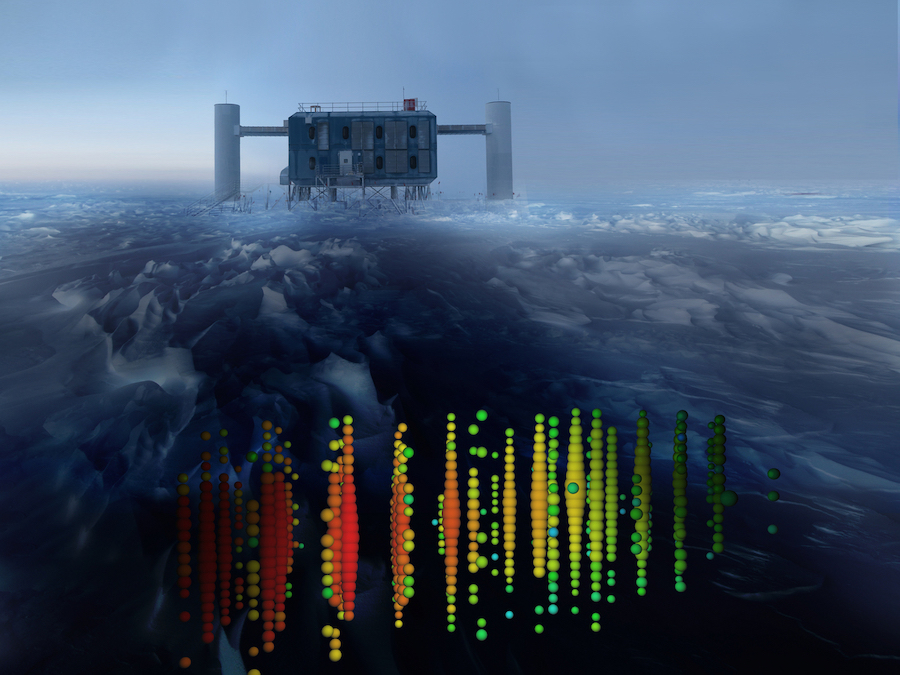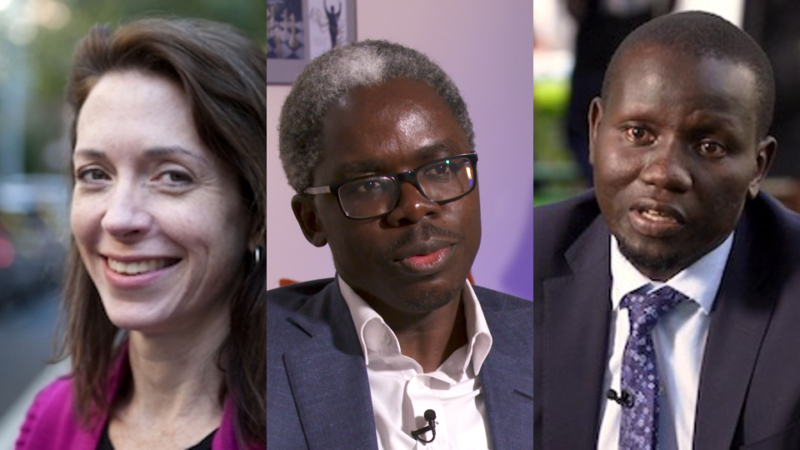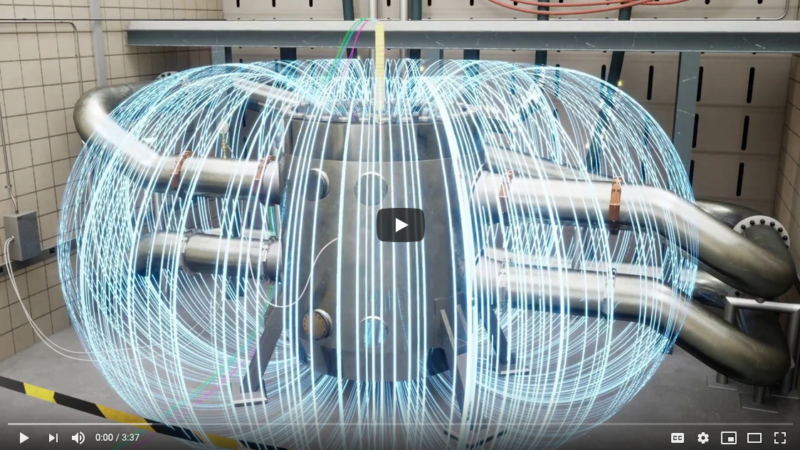
ScienceWriters2020 to feature globe-trotting virtual field trips
High-energy neutrino events superimposed on a view of the IceCube Lab (ICL) at the South Pole (courtesy IceCube Collaboration/University of Wisconsin)
Science writers will venture under the ice at the South Pole, into hospital labs in Kenya and Uganda, and inside some of the world’s most powerful electromagnets—from the comfort of their homes and offices—in three virtual field trips planned in connection with ScienceWriters2020 this October.
Field trips and lab tours organized by a host institution are a popular tradition at the annual ScienceWriters conference presented by the National Association of Science Writers and CASW. This year, when conference events had to be moved online and the traditional New Horizons in Science program trimmed back, CASW opened a competition for “Science Where You Are” (#ScienceWhereUR) ideas—virtual science experiences from anywhere.
“We were thrilled to receive proposals that take us far beyond the boundaries of a traditional conference, to places we would never be able to go in person,” said CASW Executive Director Rosalind Reid. “Perhaps that shouldn’t have been a surprise; science is a global enterprise, and many of the worlds it explores are unseen.”
The winning proposals were:
“Exploring the cosmos from the South Pole Ice: A virtual tour of the IceCube Neutrino Observatory,” submitted by Madeleine O’Keefe of the IceCube Neutrino Observatory/Wisconsin IceCube Particle Astrophysics Center (University of Wisconsin–Madison). The IceCube Neutrino Observatory (pictured in the photo illustration above), literally the coolest particle detector in the world, comprises an array of light sensors embedded in a cubic kilometer of ice. The detector looks for signals from astrophysical neutrinos—nearly massless “ghost particles” produced in violent cosmic events like exploding stars, gamma-ray bursts, and cataclysmic phenomena involving black holes and neutron stars. Participants will have a chance to talk with a scientist in Japan, take a virtual tour of the facilities at the South Pole, and get “under the ice” with an augmented reality app.

“Genes, equity, and the biggest mental health genetics study in Africa,” submitted by Tom Ulrich of the Broad Institute of Harvard and MIT. In 2015, scientists from Ethiopia, Kenya, South Africa, Uganda, and the US banded together to launch NeuroGAP-Psychosis, an ambitious 35,000-person study aimed at expanding what we know about schizophrenia and bipolar disorder’s genetic roots. NeuroGAP-Psychosis is also about equity, about ensuring that African scientists, priorities, and patients are at the forefront of efforts to develop new psychosis tests and treatments, and that a pan-African mental health genetics community has what it needs to flourish. In this event, participants will be given a virtual screening of a short documentary shot at NeuroGAP-Psychosis sites in Kenya and Uganda, followed by a live Q&A with project scientists from North America and Africa.

“A high-field field trip,” submitted by Kristen Coyne of the National High Magnetic Field Laboratory (National MagLab) in Florida. This virtual field trip will provide a close-up look at some of the world’s most powerful magnets (which ordinarily can’t be visited during experiments because of their world-record magnetic fields) and introduce scientists who use them to observe phenomena and details that other instruments can’t see. After a behind-the-scenes mini-tour, the scientists will talk about their ongoing research into how petroleum products impact the environment, quantum behaviors such as superconductivity, and other topics. They will field questions during a live Q&A as well as throughout the session.
The winning proposals were selected by a panel of CASW board members: Richard Harris of National Public Radio, Celeste LeCompte of ProPublica, and freelance journalist Robin Lloyd.
#ScienceWhereUR events will take place Oct. 6, 8 and 13 and will be presented through the ScienceWriters2020 conference platform. No advance signup is required.